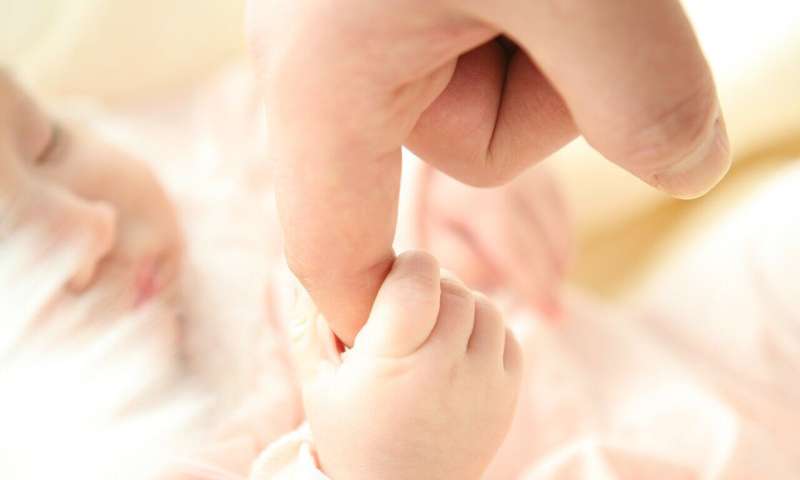
The more a baby weighs at birth relative to its gestational age the greater the risk of childhood food allergies and eczema, according to South Australian researchers.
University of Adelaide’s Robinson Research Institute senior lecturer and researcher Dr. Kathy Gatford said the team assessed past studies in humans.
Through the analysis published in the Journal of Allergy and Clinical Immunology today, researchers screened more than 15,000 studies from predominantly European countries.
Dr. Gatford said they identified 42 studies with data on millions of allergy sufferers, including more than two million people affected by allergic dermatitis, nearly 70,000 people affected by food allergies and more than 100,000 people with hay fever.
She said while the studies the team examined included people from a wide range of ages the majority of people assessed were young children.
“We analyzed the associations between birth weight, corrected for gestational age, and the incidence of allergic diseases in children and adults,” Dr. Gatford said.
“For each kilogram increase in birth weight there was a 44 percent increase in the risk that a child had food allergies or a 17 percent increase in the risk that they had eczema.
“We found that increased birth weight has no influence on the risk of childhood hayfever.”
Dr. Gatford said allergic diseases such as eczema, food allergies, hay fever, anaphylaxis and asthma are estimated to affect between 30 and 40 percent of the world’s population.
“In terms of whether the relationship between increase in birth weight and increase risk of allergy persists with age is one of the things we don’t know,” she said.
“We don’t know if we’re not picking up some of those allergies persistent to adults—just because there aren’t a lot of studies done on them.
“You don’t necessarily grow out of childhood allergies, sometimes you do and sometimes you don’t. Things like an egg allergy a lot of kids will grow out of, whereas peanut allergies are much more likely to persist.”
She said unlike big babies, children with restricted growth before birth appeared to have been protected against developing allergic responses. But these smaller babies had increased risk of developing diseases later in life.
“We don’t want small babies but we would like to understand how poorer growth or slower growth before birth is protective against allergy,” she said.
“It is increasingly clear that genetics alone do not explain risks of developing allergies, and that environmental exposures before and around birth can program individuals to increased or decreased risk of allergies.
“The main message for mums is that big babies are at increased risk of allergy, so mothers with big babies should seek advice on modifying environmental factors to reduce those risks.”
Source: Read Full Article